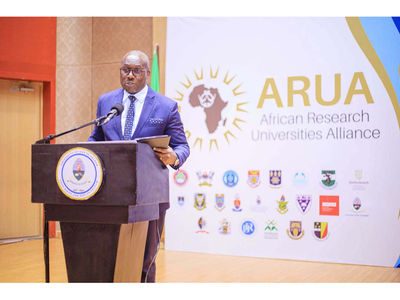A global mobile application technology that seeks to largely and extensively minimize errors and inconsistencies in travel-related information and users’ documents jointly classified as data across all spheres of the social, personal, and academic strata, has been launched at a press briefing in Accra.
For those who want to travel abroad, errors and inconsistencies in the big data including files one submits in support of any visa application can impact the visa officer’s decision.
The mobile technology dubbed, ‘DapsCnect’ currently focuses on the travel industry where many people traveling abroad are expected to provide a lot of reliable data to support their visa applications and other services for which such data or information is needed.
Errors and unreliability can also affect post-arrival procedures such as permanent residency and citizenship application.
DapsCnect is not only accessible in more than one hundred and seventy (170) countries around the globe but also can be downloaded from either Google or Apple Play Store at any time. The technology can minimize up to ninety-nine (99) percent of errors and inconsistencies in the big data to support one’s travel abroad processes and procedures. It is available in English for both Android and iOS devices.
DapsCnect has embarked on a series of educational campaigns to educate the citizenry on the big data they possess and the impact that data could have on anything they do in life, be it traveling abroad, seeking employment, applying for financial services or acquiring passports, national identity cards, and health insurance cards, just to mention a few.
Launching the mobile technology application in Accra, President and Co-Founder of DapsCnect, Dr. Amos Oppong noted that his outfit’s comprehensive and novel review of users’ data is designed to meet travel-related big data requirements across the globe. According to him, African countries including Ghana, face lots of serious challenges when it comes to data errors and inconsistencies, posing serious negative implications not only for the individual data providers but also sometimes for their families, friends, and relatives who may even have nothing to do with such data or information.
Dr. Oppong explained that the technology is led by a team of experts with a combined experience of over seventy (70) years, adding that the experts have so far jointly processed over one (1) billion (1,000,000,000) data points. He noted that one’s data for instance on the Ghana Card is more than fifty (50) characters while that of Curriculum Vitae (CV) alone can account for about five thousand (5,000) characters of data depending on the content.
The expert explained further that existing systems cannot recognize a simple incorrect password if there are errors or inconsistencies in the data – the wrong spelling of ‘Amos’ as ‘Amus’ with just one misinterpretation of a letter, will also not suffice in the system. Thus, one must pay critical attention to every data point.
The President of DapsCnect disclosed that extensive research conducted by his outfit on these data errors and inconsistencies has identified five (5) factors responsible for such developments, namely, disobeying simple instructions, inability to know what data to provide, not knowing where to capture the information, when and how to provide the data or information.
The research revealed that many people, for example, cannot provide the correct passport-size photographs when filling in various application forms. When people are asked to upload scanned documents online, they rather take pictures of such files for the same purpose.
According to Dr. Oppong, the average fully prepared adult African traveler possesses at least fifty thousand (50,000) characters of what he described as massive data. He added that many people continue to commit errors because they do not know what, when, where, and how to provide data amongst others including their refusal to obey simple instructions.
He said the DapsCnect application is designed to minimize these errors and inconsistencies within seven (7) days, depending on the user and the data provided.
Per his understanding, individuals and institutions in education, health, banking, and other sectors of the economy can be supported with DapsCnect to review the big data of their clients.
He explained that the research results from around the globe have been used to design a comprehensive data structure that can serve education and other purposes including uploading documents to the app for free storage. Those seeking to minimize errors and inconsistencies in such documents can do so at a minimal service charge. Private and public institutions, he said, are also welcome to use DapsCnect to minimize errors and inconsistencies in the big data of users.
Dr. Oppong assured users of data security saying there was no cause for alarm. From his standpoint, DapsCnect had put in place comprehensive and advanced measures to maintain its integrity and help users improve data reliability. He emphasized that despite protecting clients from data breaches, it behooves the user to also take measures such as preventing others from accessing their data on the technology, to minimize their risk.
The researcher, par excellence, stated that traveling abroad is helpful because opportunities abound there. He said achieving that goal largely also depends on how reliable one’s data is, adding that the visa officer will always use the accuracy and reliability of data and other indicators in making a decision. The more reliable and complete your data is, the higher your chances of providing a convincing application to the visa officer.
Dr. Oppong disclosed that population projection shows that African youth will dominate the employment market up to the end of the century and stressed the need for the youth who wish to travel abroad shortly, to get their data ready for such opportunities to find solutions to all the challenges they are looking for.
He cautioned the youth to avoid making hasty travel decisions without adequate preparation. He explained that apart from researching the trip they must take care of their data and thoroughly answer data-driven questions.
In his view, applying for a Canadian visa whose application process is scheduled for sixty (60) days, means one has to put in a lot to be successful.
Dr. Oppong emphasized that these errors and inconsistencies are vast and in some cases, tiny, but considered unpardonable.
He intimated that if a compound name, for instance, is hyphenated on one document and another document is not hyphenated, it reflects as an error [due to the inconsistency]. If one’s name on a national identity card differs from one’s passport, even by a character, that is an inconsistency. Some CV templates might demand the inclusion of a date of birth. If one’s date of birth on a CV does not correspond to that of their birth certificate, that is an inconsistency.
Someone has a signature on one document and a different signature on another document. This too qualifies as an inconsistency, can lead to visa denials and, in some cases, lead such a person into serious trouble, according to Dr. Oppong.
The DapsCnect President observed that because of all these challenges associated with visa applications, for instance, the average person begins the process and eventually gives up, after spending money to kick-start the process. He argued that, whether one uses agents or not, what is essential is to provide the agent with the right data, minimal errors, and hopefully zero inconsistencies. ‘This way, you are helping the agent to complete the service you are paying for’, Dr. Oppong stated.
The technology researcher urged people to cultivate the habit of supporting their data with the necessary available evidence. He explained that when one states that he is married, this can be supported with a marriage certificate if the document is available. When one indicates that he or she has children, their birth certificates are proof to support the claim. ‘In some cases, you can go the extra mile to support it with photos of yourself and your family’, Dr. Oppong emphasized. When one states that he holds a bachelor’s degree from a university, this can be supported by a certificate. Likewise, when one indicates that he or she works with an institution as a staff member, he or she is advised to provide an appointment letter.
The DapsCnect Co-founder described data as gold, saying these errors can be fixed to pave the way for successful visas and other applications. He disclosed that he has so far advised more than seven hundred (700) individuals on travel-related issues, for which several people have been successful. The issues discussed cover applying for study, work, and other forms of visas to travel abroad. Dr. Oppong added that DapsCnect is still supporting its technology with massive research where shortly, data review would take place within seconds due to the incorporation of artificial intelligence (AI) into the technology.
Dr. Oppong announced that in the next five years, DapsCnect would help ease the travel abroad process which currently takes about three (3) months to sometimes even years to prepare enough to travel. He said plans are also underway to minimize all the stress associated with the processes through the AI model. ‘We hope to assist people to travel abroad safely. We will integrate the big data they have, into other services they are interested in’, he stressed, adding that it would, of course, be done, with the client’s explicit permission. He hinted that DapsCnect is ever-willing to support agents, immigration lawyers, and, indeed, all Ghanaians and fellow Africans to minimize errors and inconsistencies in data and improve support service to make it simpler and smoother.
Dr. Oppong called on individuals and institutions in the health, education, banking, and finance spaces to utilize such a new global technology to improve their lot. In his opinion, minimizing the errors and inconsistencies would pave the way towards developing sustainable systems that rely on the big data that institutions help to provide.
He reminded the general public that the accuracy of one’s data, according to a research finding, is the responsibility of the data provider (i.e., the individual) and not that of the institution. This is because, when filling in any application form, one must ensure the data is a true reflection of the provider before appending a signature. ‘Therefore, if errors and inconsistencies in your data are not minimized and something happens later to your data, you will have yourself to blame and not the institution you have submitted your data to’, Dr. Oppong emphasized.
Dr. Oppong pointed out that DapsCnect is neither a visa agent nor an employment agent or agency. It is a verified technology and a common platform that individuals, employee recruiters, job seekers, travel agents, and potential travelers can utilize to minimize data errors and inconsistencies. It offers error-minimization services for a diverse range of users, including individuals, families, groups, and organizations. In the travel industry, the DapsCnect error-minimizing services support various purposes, such as travel abroad for work, study, tour, business, migration, citizenship by investment, etc. These error-minimizing services also cover visas and other relevant documents needed for travel to one hundred and ninety (190) countries and territories across the globe.
Dr. Amos Oppong (BA, MSc, PhD) is DapsCnect’s co-founder as well as the Research, Innovation, and Development lead. A technology entrepreneur and an experienced high-impact researcher, Dr. Oppong has spent over fourteen (14) years working and processing over one billion (1,000,000,000) data points throughout his professional career. Amos holds a Bachelor of Arts (BA) in Economics, a Master of Science (MSc), and a PhD in Management, Science, and Engineering from revered international universities across the globe.
He is renowned for his expertise in utilizing big data, machine learning, and AI for modeling, evaluating, and implementing viable solutions.
Dr. Oppong’s research focuses on developing and deploying real-time robust, industry-ready models and technologies. He regularly publishes his scientific research findings in reviews for top-tier and world-leading journals and high-level international conferences in big data, machine intelligence and AI applications, energy, and climate change, amongst others.
The error-minimizing data services that DapsCnect provides are pivotal in unlocking the vast potential of the travel industry which according to the World Travel and Tourism Council Economic Impact Research, can generate US$9.5 trillion in revenue.
Over the past two (2) years, policymakers in Germany, Canada, Australia, and several other countries have been designing and implementing policies that promote sustainable immigration. Reliable, verified data and ultra-fast processing processes are essential for the success of these policies.
DapsCnect is poised to help users leverage and optimize the benefits of these policies and measures.
The post DapsCnect launches mobile tech to minimize data errors and inconsistencies appeared first on The Herald ghana.




